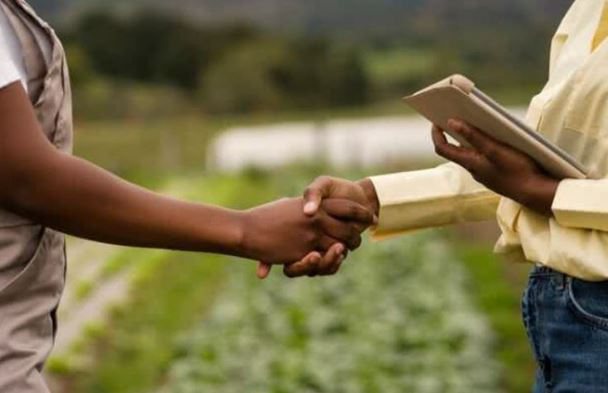BNews Agro: Experts Address Challenges of Credit Access for Brazilian Rural Producers
BNews
Jul 31, 2024
The cost of agricultural credit in Brazil is considered one of the highest in the world, according to experts.

Access to credit remains a significant challenge for Brazilian rural producers. Market conditions limit the growth and modernization of the agricultural sector, which is essential to the country's economy. Despite the importance of agribusiness, representing approximately 27% of Brazil's GDP according to the IBGE, many producers face significant barriers when seeking financing.
Brazil's high cost of agricultural credit is frequently cited as one of the highest in the world, influenced by economic instability, inflation, and stringent monetary policies. Tiago Piassum, CEO of Rivool Finance, and Cristiano Oliveira, head of research at Rivool Finance and associate professor at the Federal University of Rio Grande, affirm this.
Access to credit remains a significant challenge for Brazilian rural producers. Market conditions limit the growth and modernization of the agricultural sector, which is essential to the country's economy. Despite the importance of agribusiness, representing approximately 27% of Brazil's GDP according to the IBGE, many producers face significant barriers when seeking financing. Brazil's high cost of agricultural credit is frequently cited as one of the highest in the world, influenced by economic instability, inflation, and stringent monetary policies. This is affirmed by Tiago Piassum, CEO of Rivool Finance, and Cristiano Oliveira, head of research at Rivool Finance and associate professor at the Federal University of Rio Grande.
According to experts, credit market transaction costs are considerable and difficult to measure, especially in Brazil. The gross financial assets of the economy, including assets and liabilities with non-residents, reached R$ 72.6 trillion in December 2022. The consolidated balance, excluding intra-sector positions, was R$ 59.3 trillion. "These numbers illustrate the relevance of financial intermediaries in the Brazilian economy and highlight the complexity and costs involved in financial transactions. Bureaucracy and lack of collateral are obstacles, and small and medium-sized rural producers struggle to obtain loans. This is partly due to the nature of their properties and activities, which are not always easily valued or accepted as collateral by banks," explain Piassum and Oliveira.
According to the executives, rural credit in Brazil is highly dependent on government interventions, such as subsidies and debt renegotiation programs. While these measures are essential for many producers, they also result in a distorted credit market, where the supply of subsidized resources is insufficient to meet total demand, forcing many to seek more expensive and less accessible credit lines. "In recent years, there has been an increase in the participation of non-controlled resources, such as Agribusiness Credit Bills (LCA) and credit cooperatives, which operate at market rates. However, the transition to these forms of financing has been slow and faces resistance due to the lack of familiarity and trust from producers in these new financial tools," they clarify.
Faced with these challenges, promoting solutions that can democratize access to credit and make the market more efficient is essential. "The adoption of financial technologies (fintechs) and the creation of new financial instruments, such as Agribusiness Receivables Certificates (CRA) and Investment Funds in Agro-Industrial Productive Chains (Fiagro), as well as other agribusiness-related assets, have the potential to transform the rural credit landscape in Brazil," Piassum and Oliveira continue. "For example, CRAs are debt securities backed by agricultural sales receivables, allowing investors to finance rural producers' operations directly. Since their regulation in 2018, CRAs have proven to be an attractive alternative for investors, offering competitive returns and helping to fill the financing gap in the sector."
Additionally, they point out that blockchain technology and asset tokenization are emerging as powerful tools to facilitate access to credit in the agricultural sector. Blockchain offers transparency and security in transactions, allowing smart contracts to automate and guarantee the fulfillment of financial agreements. "Tokenization, in turn, transforms agricultural assets into digital tokens that can be easily traded on global platforms, expanding financing opportunities for rural producers. These technologies reduce the costs and risks associated with traditional transactions and increase liquidity and access to capital," both emphasize.
For Piassum and Oliveira, tokenization provides significant efficiency gains. Although implementing these technologies may require initial investments and adaptations of existing systems, the long-term benefits outweigh the initial challenges. The broad adoption of tokenization by the market can effectively expand liquidity despite the initial implementation costs. Moreover, new technologies demand new systems, and while integration can be challenging, it promotes modernization and operational efficiency.
"The credit challenges faced by Brazilian rural producers are complex and multifaceted. However, with the implementation of innovative solutions and the modernization of the credit market, there is significant potential to overcome these barriers. Promoting a more facilitated and efficient environment for rural financing, driven by emerging technologies such as blockchain, will benefit producers and enhance investor accessibility and contribute to sustainable development and economic growth in Brazil as a whole," they conclude.